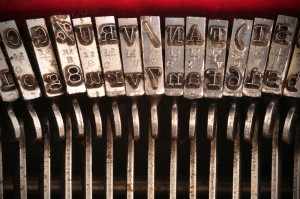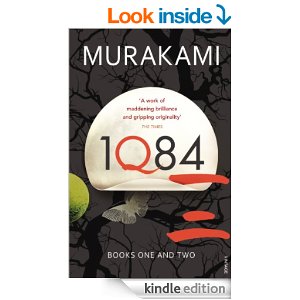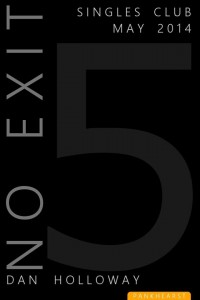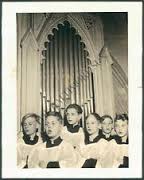I’m struggling to know how best to introduce my guest today, such is my admiration for him. I could quite simply say that he is among the most brilliant, kindest and wisest souls I have ever had the pleasure of making the acquaintance of, but that wouldn’t capture his essence. On his website, you’ll find the motto, ‘It is better to try to be extraordinary and fail than to try to be ordinary and succeed’, which may well be the most succinct summary I can offer. If he didn’t hate social settings so much, he would make the ideal dinner party guest. I don’t want to gush, so the best I can do is to ask the question…
Who IS Dan Holloway?
I actually wrote a poem as a profile once. That might be more interesting than philosophical musings.
i write stories
i write your pleasure
i write your pain
i write my words inside your brain
like drugs
like knives
like the larval infestation that eats it alive
i twist, i worm
i scream, i squirm
enticing, inciting
reviling, delighting
i’m the coil, the spring
the sweetness, the sting
i’m the voice in your head
i’m the bugs in your bed
i’m the heart still beating long after you’re dead
Poet, novelist, commentator, journalist, event organiser… which came first? (Aside: I actually found a Dan Holloway offering guitar tuition on You Tube. I have established this is NOT you but frankly nothing would surprise me.
I am neither the guitar tutor nor, sadly, the pro cyclist. I’m a flitter and each of those things is simply a manifestation of that core flittiness. There’s a wonderful article online by Hank Pfeffer called Danger: High Voltage. It’s about what he calls the “too many aptitudes problem” and reading it was one of those moments of sheer relief and recognition. I find it almost impossible to do the same thing for more than a very limited amount of time. So I end up getting “very good” at a number of things but never really excelling – it’s incredibly frustrating but it also means there’s never a shortage of things to talk about (it’s just a shame I hate parties where I’d actually get to talk about them!). So I was in my university athletics team, and reached decent national standard at powerlifting and indoor rowing, I was in the Great Britain juniors bridge team (I actually got thrown out of the Great Britain juniors bridge team for bringing the game into disrepute – that’s a whole other story), I’ve won world level medals at creative thinking and IQ tests, one year my wife and I travelled 23 countries on budget airlines and got on the cover of Woman’s Own, I’ve ended up speaking in the House of Commons about debt and mental health and have consulted to the banking industry and the world’s leading luxury flooring manufacturers! That kind of thing. And then there’s the writing where I have equally itchy feet. I guess you could call me a perennial snowliner – I obsess over things until I get to a certain level that’s just below the top, and then I move on. One day I’d love to stick with something till I make the final push. But that probably won’t be any time soon!
With such a diverse output, is there a common thread running through your work?
Absolutely. There are two elements to my writing. Not one. Not three (unless you count misquoting Monty Python), but two. I want my writing to be a hand held out to hold those who find themselves alone and on the edge in the darkest part of the night. And I write outsiders. Anyone and everyone who find themselves on the wrong side of the acceptable part of the bell curve.
One of my favourite people to hear deliver a speech is Joanna Penn. But her enthusiasm masks the fact that it was some time before she became comfortable with public speaking. As a performance poet, have you had to set any personal demons aside?
I think like many performers, I’d say performing *is* my mask. I hate social settings with a loathing. Put me in a party and I will crawl to the nearest corner and keen into the wall. Put me in front of a crowd and I come alive. It’s both direct, intimate, but somehow distanced and controlled. There’s no danger of small talk. Any improv, any tangentialising will be all my doing. I know I won’t get put in a position I can’t cope with. And I’m wrapped in the blanket of the world I’ve woven for myself, which is the safest place a writer can ever be. As soon as I step off the stage, normality and all its myriad sickening provocations to anxiety and despair intrude again, but as long as I cling to the microphone I’m safe.
You can see Dan performing his poem I Cannot Bring Myself to Look at Walls in case you Graffiti them with Love Poetry at ALLi 2nd anniversary party here.
Your name crops up everywhere on the writing circuit, and I know that you also work a day job. Do you ever worry about spreading yourself too thin or does the maxim ‘Ask a busy person’ apply to you?
I think that comes from various of my personality traits. As I’ve said, I’m a professional flitter. I need variety or I seize to a standstill. Add that to bipolar that skews to the mania end and I end up taking on way too many things even when I know it’s not good for me, so yes, I worry about it constantly. I also suffer from the same anxiety that drove Kurt Cobain – what if I stop? Opportunities come so rarely, what if I say no to the thing that would have been my breakthrough? People forget you very quickly unless you’ve broken through. Fear of being forgotten haunts me like my shadow. There have been too many times in my life where I’ve been the kid who wasn’t invited to the party. It still happens now – if life intervenes, even for a few weeks, you’re suddenly not the person who’s quoted, not the person people remember in conversation, not the one who’s asked along. Passion, belief, fear, insecurity, and the need for the new are the cylinders of my engine.
You state that art should be free wherever possible, but those could can afford to pay should. There is considerable debate as to whether free devalues the written word. State your arguments against.
I think that’s the wrong question. I’ve never come across someone who’s said that who’s defined “devalue” in a way I could give a monkey’s arse about! Art that changes the life of the person who writes it is infinitely valuable. Art that changes the life of the person who witnesses it is infinitely valuable. Spewed out marks on a page or a canvas or an MP3 file or anywhere else that do neither aren’t art, and I’m not really interested in them in that context (which isn’t to say I only read “art, mwah mwah dahling” – I love all kinds of books, but the question rightly points to art because that’s the word people use when they talk about devaluing). I’m certainly not interested in whether people born lucky enough to have an education that enables them to string a coherent sentence together are able to perpetuate their privilege by means of having others shell out for their sentences, and that’s what most people seem to mean.

By your own admission, your novels are literary and experimental, which must make them difficult to mass-market. Would you always prefer the cult following of like-minded readers?
I think any writer would rather have a following of the like-minded. However big that following is.
Your novel, Songs from the Other Side of the Wall, was compared to Iain Banks’ writing. How does it feel to have your style compared to another author? And to that particular author?
Deeply flattering. Iain Banks is one of the towering figures of the 20th century Britain. To have my writing compared to his is a huge honour – the only greater honour would be to be compared to him as a human being – he was one of the finest exemplars you could ever find. The Wasp Factory is a book that has remained with me since my early student days. I guess it’s a work I’ve been rewriting ever since – maybe one day I’ll produce a book worthy of the comparison.
My writing is more usually compared to Haruki Murakami because, stylistically, we’re very similar. I write casual vernacular slightly slacker-ish and self-conscious narrators who are steeped in a musical and artistic underground, and my male characters tend to be one dimensional foils for my women. I also share his tendency to magical realism

I’ve been accused of breaking rules in my own writing. Somehow, I can’t imagine you reading a guide on how to write a novel, but is there someone whose advice you follow?
I’ve read pretty much every guide there is on everything creative from novels to art to music and even how to deliver a rap. I think that’s a misconception about me. I’m a synthesiser, a magpie, a plucker of thises and thats. Like I said earlier, when I get into something I obsess over it so I read everything that’s ever been written about it if I possibly can.
This is also why I will never, sadly, write the kind of thing I truly love to read. For me the most exciting writing isn’t by those who write outside the box, it’s by those who never knew the box was there. The only time I’ve come across that among my peers is in the writing of Penny Goring. She bends sentences into shapes the English language has never been in before. That’s what the writing we celebrate should do. It’s unconscious and uncalculated and will change your life. That’s what I mean when I say life-changing art is unedited. It’s another thing I get misquoted on. 99.99999% of writers would be qualitatively better with an editor. An editor may even help them to write very very good books, books better than most that’s published. But an editor will never help them to write books I care about. And if someone gets near them who teaches them what the box is, even if their first book is incredible, everything else will be a pale imitation. I think people think I’m talking about myself when I’m not. I definitely need an editor. I think I write very good books. I think an editor would help me write very very good books. But I’m never going to write a book that turns the world on its head. And that thought fills me to my core with a deep melancholy because for me those are the only books that really matter.
As for whose advice I follow. Tricky. It’s more I have people I admire, whose work I try to understand so I can understand myself better and make my words come from a better place. Many of them aren’t even writers. I’d list Jack White, Frida Kahlo, Jean-Michel Basquiat, Patti Smith, Ferlinghetti, Dubravka Ugresic, Jeanette Winterson. But if you want actual specific advice you’d be hard pressed to top Amanda Palmer’s Ted talk “The art of asking”. I’d say to anyone who wants advice to come back when they’ve learned it by heart.
How did you come up with the numbers in your novel written in numbers, Evie and Guy?
I always wanted to write a book that was just written in numbers. In part because I’m intrigued with the relation between words and numbers, and the fact that what connects them is some sort of syntax, or logic. And in part because we live in a digital age. Everything we do is about numbers, only those numbers are made to do other things, to drive images and sounds and sensations. I thought, why mediate? Why not let the numbers drive our own personal hardware, our brains?
I settled on masturbation (the book lists the time, date, and duration of every act of masturbation in two characters’ lives) largely because it’s something that does link to most areas of our lives. It’s an introduction for readers to the world of numbers – it should be fairly easy for them to start to construct stories and experiences based upon the numbers they were given.
I took the circuitous route when I was writing – I drafted out their lives in longhand first, pencilling in every major event – from times they were bullied at school through the deaths of parents and loved ones to career and so on – and I looked at how that would impact their masturbatory experiences. I absolutely don’t expect, or want, readers to reconstruct that longhand. But I wanted it to be there. It felt like the least I could do – so the details are accurate – I researched school term times, for example, and got my Easter dates right. And of course I was aware of world and local news events. It mattered to me that I wasn’t simply doing something random. I’ve been criticised for that, and I accept the criticism – the experiment isn’t as hardcore as it might have been. But it was never about experimenting as much as it was about trying to get right under the skin of the sensuality of our lives.
Would you like to share an extract from something you’ve written recently?

This is the opening of my new book, No Exit. It’s a book with a very pared down story (in the disused library tunnels under Oxford, two women who have never met are about to commit murder together) with what I hope are some deeply complex questions about revenge, killing, beauty, morality, and friendship.
Chapter One

Head out of the Sheldonian and under the gnarled stone reproduction of the Bridge of Sighs, past a turn so tiny you’d never know it was there if you didn’t smell the speciality cider wafting at you and hunt to find the source, further on, cornering twice as tarmac turns to cobbles turn to tarmac, and you arrive at the back entrance of New College, Oxford, and on a clear winter night you can just about hear the sound of choirboys practising far away in the chapel and if you remember that ten metres below your feet is the plague pit where centuries earlier they flung the city’s unwanted dead, and if it’s dark enough to disorient you, and if you listen for long enough as trebles strain at the top notes, you will be sure you can hear a thousand last confessions sweating into the sky too late for absolution.
Wait a little longer still, and your mind might carry you deeper. Another ten metres. And another, to a place where far more recent secrets are stored. All across Oxford the earth beneath your feet is criss-crossed by miles of tunnels that, until even they started to creak under the weight, housed the collections of the Bodleian Library, one of the oldest and largest in England. Many of the books were moved a year or so ago to new, tanked out and humidity controlled homes by the canal in Osney Mead, and further afield in Swindon, leaving acres of empty caves slowly going fetid now the switch has been turned off for good.
But some of them are not so empty. Soundproofed and secure, you will never hear the screams, no matter how long you stand and listen for them. You will hear only the choirboys, calling out for mercy to a God who gluts himself on their supplications and belches out only silence in return. But they are there. The screams. Bouncing off foam clad walls in a hell of their own making. In a room with no windows. A room that welcomes people two at a time. For one of them there are no consequences. For the other, no exit.
I close my eyes so that the fog is present only as a thin film pressing my skin, and I am sure I can hear them. The footsteps, tentative at first, then confident, then pumped full of adrenalin and the lightness of release. And the screams. The unheard screams decaying on the broken-foamed walls. And I allow myself the satisfaction of knowing that whatever else life brings, I’ve done something good.
I reach up for the familiar fingerhold. After four years of parkour I feel each dorsal fibre flexing, unconsciously calibrating forces like a piece of precision engineering. Pull, kick, and two steps later I’m sitting on top of the wall, with New College one side and Queens Lane the other. I attach a cable to my tablet and feel two stones down from the top of the wall. There it is. The cold metal connector of a USB stick concreted into the wall. One of dozens of Petrichor’s offline digital dead drops scattered across Oxford.
My tablet wears a tiny halo like an electric angel. One new file. I upload it, wipe the USB’s memory clean, unplug, and watch Jem’s face beam out of the screen, full of innocence and life.
Which book/s are you an evangelist for? If they are relatively unknown, how did you discover them?
There are so many books no one knows about that everyone should know about. I’ll try to keep it brief and start with poetry in the shape of Adelle Stripe’s Dark Corners of the Land. Adelle was one of the Brutalists, the first fully recognised online literary movement. The Brutalists were basically a reaction against the London-centric superficiality of literature and Dark Corners of the Land is the perfect expression of the harsh, unprocessed sensuality of nature and the encroachment of the slick conceptual appropriation of that by urbanity. It’s like a 21st century Hardy, a from the gut Birth of Tragedy taking the theme of Apollo and Dionysus and wrapping it in the most devastatingly powerful language.
What else? For lyrical thought provoking magic realism, Rohan Quine’s The Imagination Thief and Simon Wilson’s End Credits. For a book that will rip your heart out and stick one in the eye to everyone who thinks they’re cutting edge, Penny Goring’s Everywhere Cloud. And something that’s not self-published but is heartbreakingly beautiful, Kirsty Logan’s The Rental Heart.
What is your favourite opening line of a novel?
I’m very boring in my choices. ‘Call me Ishmael is’, of course, perfect in every way and cannot be improved upon. As for something more modern, the opening line of Adrian Mitchell’s devastating poem To Whom It May Concern – “I got run over by the truth one day” – takes some beating . And the opening line of Brett Easton Ellis’ Less Than Zero – “People in Los Angeles are afraid to merge on freeways” – sums up and critiques the whole Reagan-Bush era in 10 words.
Finally, where can we find out more about you and your work?
Everything about me is on my website
Though I will add that my new book No Exit is available at http://www.amazon.co.uk/Exit-The-Pankhearst-Singles-Club-ebook/dp/B00K21N9NW


